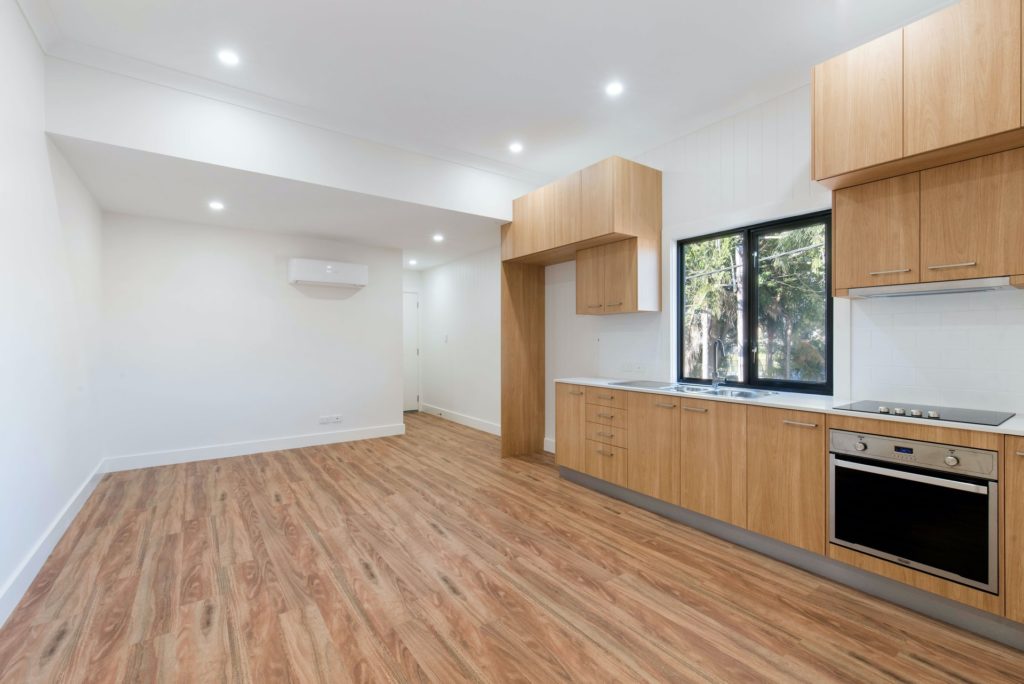There can be many reasons why you might not be able to agree a mortgage on a property, mainly to do with the state of repair or location of the property.
With the increase in popularity of investing in property in the UK recently, we’ve seen a huge surge in the number of enquiries we get about an unmortgageable property and what sort of finance could be put in place instead.
Many of these properties are ones that are bought at auction or bought at a much lower price than the market rate as investors and developers look to make a good profit.
Auctions certainly have increased in popularity for this reason, with many properties going to auction that have been repossessed, fallen into disrepair, or that have been inherited and no longer required.
In many areas of the UK over the past few years, property price increased have hit almost double figures, and this has prompted many to now look to get into the UK property market or expand their investments into it.
Here, we’re going to run you through unmortgageable property in a little more detail.
What does unmortgageable mean?
 Unmortgageable property essentially means that a property doesn’t meet the criteria for a long-term mortgage. Mainly what makes a property unmortgageable will be related to its state of repair, and whether the property is inhabitable, and how much work it will require in order to bring it up to that sort of standard.
Unmortgageable property essentially means that a property doesn’t meet the criteria for a long-term mortgage. Mainly what makes a property unmortgageable will be related to its state of repair, and whether the property is inhabitable, and how much work it will require in order to bring it up to that sort of standard.
When you’re looking to arrange a mortgage, it could be for residential, commercial or as a buy-to-let. When property investors are looking to turn a profit on a property investment quickly, they’ll often raise bridging finance before selling the property on almost immediately. If you’re looking towards mortgages as a long term solution this usually means that you’re planning on using the property yourself or planning on renting it out to somebody else as a landlord.
It could also mean that if you’re trying to sell the property on quickly, and you receive a letter about unmortgageable properties that you can’t sell as the prospective buyers won’t be able to arrange a mortgage in the long run, which can cause serious problems.
Here are some of the main reasons why a property may struggle to be agreed for mortgages.
No kitchen or bathroom
Most modern properties will have a kitchen or a bathroom as, let’s face it, everybody needs them. It’s absolutely non-negotiable to have these things in a property, even if they’re shared as part of a House of Multiple Occupation (HMO).
There can’t be many knocking around, but there are still some, that don’t have a kitchen or bathroom, and if this is the case then any bank or mortgage company is going to want you to get them installed before they’ll be able to offer long-term finance for it.
Similarly, if the property has them, but they’re in a very poor state of disrepair, then you’re going to need to spend some money bringing them up to scratch before a mortgage company will take a look at it. If you want to talk this over and speak about it in more detail our advisors can help.
Too many kitchens
It may seem odd, and you may even wonder why the rule on the number of kitchens is so strict, however, there’s logic behind this. If you’ve got more than one kitchen then the idea is that it makes it much easier for you to sub-let the property out to somebody else and charge them rent.
Mortgages don’t cover this and, so, won’t offer you a mortgage on a property if it could easily be sub-let out to somebody else where you can collect rent payments without the prior agreement of your mortgage company.
Close proximity to commercial property
If your property or house is either above, next to, or within very close proximity of a commercial property or shop, then there’s a chance that a mortgage company may not want to commit to providing you with long term finance.
That may seem harsh, however, there’s every chance that the business in question may change its use and perhaps turn into something that may devalue the property in the long run such as a bookmakers or a 24 hour off licence or something of that nature.
Short leases
If the property you’ve purchased is on a relatively short lease, and by that we mean anything 50 years or less, or around that area, then many mortgage lenders will become nervous and see the property as perhaps too high a risk to offer a mortgage on.
There is a solution, however, to avoid it being unmortgageable, in that you can take out finance to extend the lease on the property. Alternatively, you may have to find some very specialist lenders that may be willing to provide you with a mortgage.
The priority should be to seek out the freeholder and see if you can extend the lease, however, if that’s not possible then you can seek out niche lenders. If this is something you’re concerned about you can reach out to one of our brokers.
Risky locations
When we say risky locations, we mean two things mainly. If your property is near a flood plain or is near to old mine shafts, then this can mean that you’re going to struggle to arrange longer term finance and this can make your house unmortgageable.
Similarly, if your house is near a landfill site or other waste processing plant, or smelly things such as sewage works, these are all things that may mean you’d struggle, and make you unmortgageable.
Low value properties
Higher value properties are easier to get a mortgage on, and lending more generally, because logically there’s very little money to be made in financing a tiny amount when it comes to property.
Of course, what we would class as low value in property isn’t the same as what we might think of in our bank accounts, for example, and realistically any property that’s worth £50,000 or less will probably be considered unmortgageable due to the fact that a bank or lender can’t make enough money out of the loan.
How to finance an unmortgageable property
Just because a bank or mortgage lender consider the property unmortgageable doesn’t mean that you can’t source finance from lenders in order to be able to sell the property or get a mortgage.
There are a number of specialist lenders and finance companies that are happy to finance works and development on properties that are unmortgageable, and to update the property.
These are usually shorter term solutions that allow you to carry out either the necessary development or refurbishment work, and at that point you can either choose to organise the required mortgage or sell the property on.
There’s a number of different options, and as an experienced broker we have access to a large and diverse panel of lenders and investors who are happy to finance property of this nature, so this isn’t an exhaustive list, however, it is a breakdown of some of our most popular products when clients find themselves unmortgageable.
Bridging loan
Bridging loans are versatile and flexible loans that can be used for a number of reasons, however, many of our clients use them for property.
They are named bridging loans because they’re designed to bridge the gap, and in their simplest form they are just a short term solution for raising capital, usually against property. If you’ve bought a property, for example, that needs structural work doing and a kitchen installing, then you can apply for a bridging loan for a short period, paying slightly higher interest, before then paying the finance off after a set period and then arranging something else.
Rates and terms vary, but as we have access to a large panel of lenders, we can shop the market for you and bring you the very best deals.
Refurbishment finance
 A type of bridging in and of itself, refurbishment finance is specifically designed to help you with the costs of refurbishing or developing a property.
A type of bridging in and of itself, refurbishment finance is specifically designed to help you with the costs of refurbishing or developing a property.
If you’ve purchased or have come in to ownership of a house that will require significant work before a buyer will be able to arrange a mortgage then property refurbishment finance will allow you to raise the capital you need to bring the house up to scratch.
Similarly, it may be the case that the value of the property is too low to be able to organise a mortgage, and in that case you can also use this type of finance to try and add some value to the house perhaps by adding another bedroom, a conservatory, an extension, or something else of that nature.
As with most short term finance, you’ll be able to justify the finance and deliver an exit plan if you know roughly how much value it will add to the house, how long it will take and how you intend to repay the initial finance amount.
Auction Finance
Many of our clients use specialist auction finance for a property that won’t qualify for a mortgage after buying at auction. A lot of the time the properties that go to auction are in a state of disrepair or require some work or refurbishment before being able to be sold or raise long term finance against them.
Similarly, the terms of purchase when you buy a house at auction often mean that you’re required to exchange contracts on the day and then pay the full balance after 28 days. If you have purchased a house in which you need to complete the purchase and undertake works to bring it up to scratch, within 28 days this is often a stretch even for cash rich clients.
That means that we’re often in a position to help them arrange shorter term finance specifically. This alleviates the pressure to complete the purchase quickly and undertake the works in a difficult amount of time.
Speak to our brokers about your unmortgageable property
We have years of experience in this industry, organising finance for these types of property, and have spent a long time building a team and a panel of lenders that are able to provide you with the best advice, the best products and the best deals.
When it comes to property, and especially this type of house, it can be a daunting prospect to get everything done, and you can feel under a massive amount of pressure. We’re here to offer you free advice from advisors that have the experience to help you along the way.
Aside from that, we’ve cultivated a relationship with a panel of lenders that are completely specialist and therefore truly understand the market and what you need, rather than approaching traditional lenders. Our specialist lenders are often able to offer our clients exclusive rates and terms, too, so you can be confident that we’ll always find you the best deal, so why not pick up the phone today?

